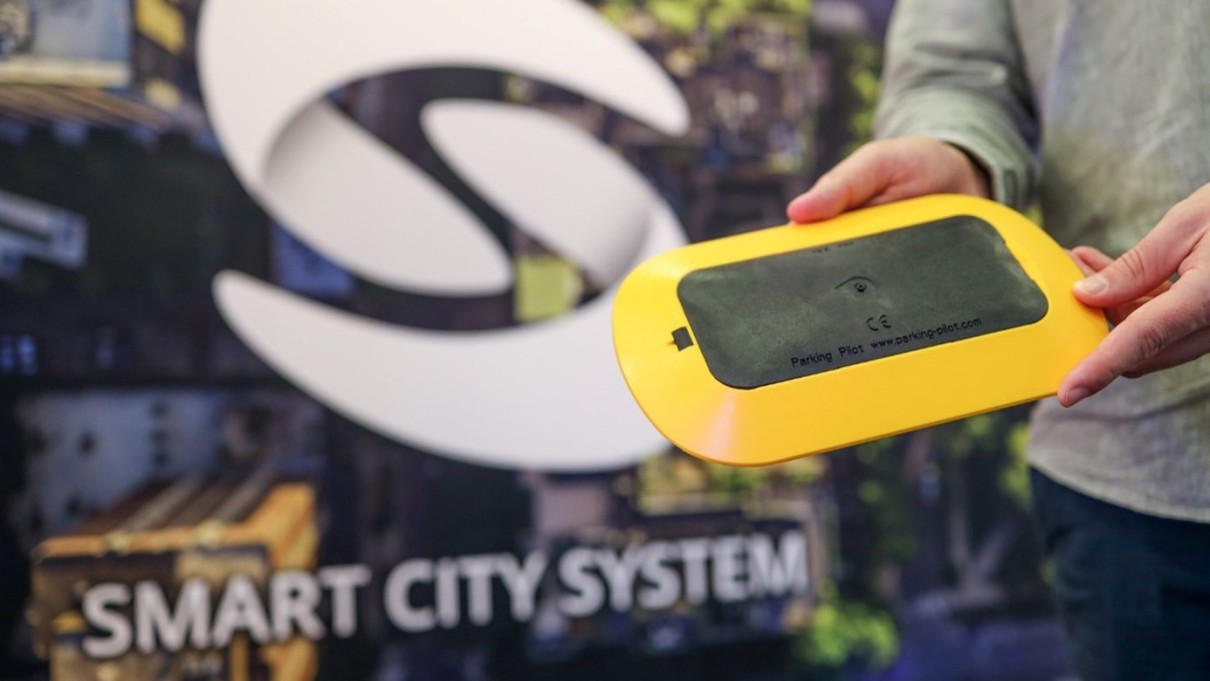Page content
Sustainability in the Smart City

With sensors, data and interoperable systems, smart cities can make a significant contribution to greater sustainability in the city. Image: Messe Berlin
The asphalt is glowing, the sun is heating up homes and offices, plants are withering, and at the same time heavy rainfall is causing basements to overflow and streets to flood - the effects of climate change are particularly evident in summer. Innovative smart city solutions can help mitigate the effects of climate change or produce less climate-damaging greenhouse gases. In this way, smart city technologies not only ensure a better quality of life in cities and communities, but also lead to greater sustainability.
Smart buildings
Smart buildings use advanced sensors and IoT technologies to improve energy efficiency and comfort. Heating, ventilation and lighting can be automatically controlled and adapted in real time to the needs of occupants and weather conditions. Smart windows and facades regulate light and temperature, for example, and rainwater is used for irrigation instead of being wasted into the sewer system. Solar panels on the roof generate their own energy. All of these measures can reduce the running costs of buildings and create the best conditions for the people who live and work there.
Smart grids
According to Stromnetz Berlin, Berlin consumed around 12.2 terawatt hours of electricity last year - that's around 12 billion kilowatt hours - a huge amount. To meet this energy demand in the future without further damaging the environment, many cities are turning to renewable energy and smart grids. Smart grids monitor and control the flow and consumption of electricity. For example, they can better integrate renewable energy into the grid and reduce power outages.
Smart water management
Sensors on the roots of trees report when they need watering, while sensors in the sewer system can indicate when a pipe is broken. In smart water management, data is collected in a variety of ways in order to use water responsibly. Predictive maintenance in water supply refers to the use of advanced technologies and analytics to monitor the condition of infrastructure such as pipes, pumps and sluices and predict when maintenance is needed. This helps to avoid unplanned outages, improve efficiency and reduce costs.
Smart mobility
One of the goals of smart mobility is to network all transport services intelligently. For example, people should be able to use an app to book all modes of transport and receive information on available parking spaces, traffic conditions and departure times. Intelligent traffic lights and sensors on the roads and in vehicles will also provide important data to monitor and optimise traffic in real time. If transport is intelligently networked, CO2 emissions can be reduced and the quality of life of citizens can be significantly improved. According to the Bitkom study on the climate effects of digitalisation, up to 9.3 million tonnes of CO2 could be saved in 2030 if digital technologies are used in the mobility sector as quickly as possible. Michael Pfefferle, smart city expert at Bitkom, adds: "Cities must continue to expand their investments in the mobility sector and actively drive forward the digital transformation. This includes stepping up the expansion of charging infrastructure, networked traffic control and the promotion of intermodal mobility concepts".
Smart waste management
When cities embrace smart waste management, it starts with residents at home - they can be reminded via an app or website when their waste is due for collection. Collected data can be used to optimise waste collection routes, resulting in fewer empty trips. Sensors in municipal waste bins provide information about the level of waste in the bin and can report when the bin needs to be emptied.
Become an exhibitor at #SCCON25
As a driving force for the future of digital administration and for equal digital living and working conditions in cities and rural areas, the Smart Country Convention is a must for all stakeholders who actively advance the digital transformation. Are you interested in advancing the digitization of our cities and municipalities too? Join us and position your company or municipality as an expert in digitalization in the public sector.



